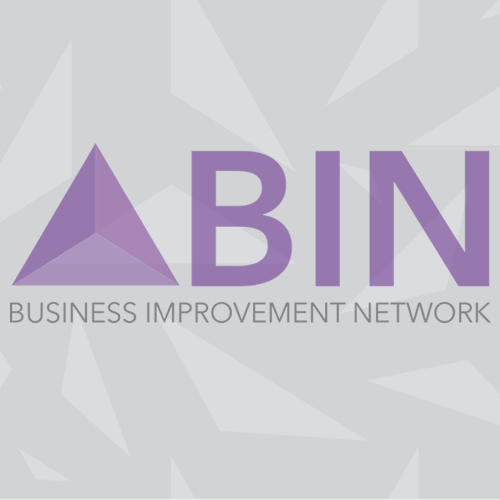Nine budget-free Business Improvement tips
By PJ Stevens

Most businesses think improvement starts with a bigger budget.
It doesn’t.
Many of the real game-changers don’t cost a penny as we have seen in some recent work with clients.
These simple and effective business improvement game changers are about focus, energy, and leadership — not new software, shiny new things, over-priced consultants or endless restructures.
One of our beliefs is that people are brilliant – if you give them the change – and therefore you have huge resources that you already pay for to make your business better.
The question is whether you’ll actually do it and engage these resources.
If you want sharper performance, stronger teams, better results and improved business — without asking for more money — here are 9 things you can do immediately.
These nine no-budget ways to improve business come from recent work with clients.
9 No-Budget Ways to Improve Your Business
1. Communicate better, more often.
Poor communication wastes time, creates confusion and can kill momentum - we have all dexperienced it. You can dramatically improve your business just by being clearer, more direct and more regular in how you communicate.
Business improvement tip:
Hold short, daily or weekly check-ins to promote clarity and focus, and reduce or minimise waffle, excuses and unhelpful behaviours. If useful set time aside for coaching cionversations, which, subject to contrary beliuef do not have to be an hour, often 10-focussed mins is plenty.
2. Simplify how work gets done ( cut the crap)
Most businesses get tangled up in unnecessary steps, activities and red tape. Simplifying processes improves speed, service and morale, without costing a penny,. In fact it will save and make you money.
Business Improvement tip
Ask –‘What’s slowing us down?’ What’s unnecessary or pointless? Then remove it. Trust people to do the job, be accountable and not just follow a checklist. It works wonders!
3. Agree and set clear expectations
Ambiguity, misunderstanding and unmet expectations can kill performance. You don't need a bigger budget to tell people exactly what's expected of them, what success looks like, and by when, or to listen to their needs and expectations.
Business Improvement tip:
Be clear about goals, standards, expectations and deadlines, and set your team free to be brilliant. Remember some 60% performance related issues - according to CIPD- comes from unmet needs and misunderstanding.
4. Say thank you, properly
Genuine recognition and appreciation is free and it’s powerful. People want to feel valued. A genuine thank you builds loyalty, energy and engagement.
Business Improvement tip:
Catch people doing good work and say thanks clearly and sincerely - this might be personally or publicly subject the to the person and situation.
5. Cut time wasting and meetings
Clients tell us that meetings are one of the biggest wastes of energy and time, leading to huge hidden costs in business. Most meetings achieve very little. You can improve productivity massively by killing off, tightening or better structuring meetings.
Business Improvement tip:
Ban meetings that don’t have a clear purpose, agenda or decision to make. Keep meetings short, experiment with max 15–30 minute meetings. And dont go to meetings where you are not contributing in some useful form.
6. Improve decision making speed
Slow decisions cost money, morale and lead to missed opportunities. You don't need a budget to empower people to make faster, smarter decisions. Tap into their wealth of knowledge, creativity and ambition - that you already pay for - and empower people to make decisions at the local level.
Business Improvement tip:
Agree who decides what. Shift authority and opportunity down and across the business. Encourage people to act on c70% information rather than waiting for 100% which may never come.
7. Sharpen customer focus
Getting closer to your customers costs nothing but it can transform how you work and what you prioritise. Customers are often willing to help you identify and make improvements, for everyone’s benefit.
Business Improvement tip:
Listen to real customer feedback. Read reviews, connect with people, listen, learn and lead change. Perhaps even hold an open spaceessioin with staff, clients and suppliers to get great insights to improve business.
8. Tidy up the work environment
A clean, well organised environment creates a more productive, professional mindset. It shows pride and lifts standards. Having just been with one company who has done this, they noted improvements in culture, reduced sick days (stress) and productivity.
Business Improvement tip:
Have a ‘reset and refresh’ day. Clear the clutter. Clean and organise the spaces. Everyone gets involved, there’s no budget needed. And you will see results.
9. Lead by example
Leadership behaviour sets the tone, whether you realise it or not, leaders are the most watched population. Want more urgency, better service, higher standards? Show it yourself.
Business Improvement tip:
Turn up on time, stay positive, own mistakes and so forth. Follow through. Model what you expect. And brush up on your emotional intelligence as human only skills and cinnections will be even more important in the tech-filled world.
It seems that for many clients, Business Improvement isn’t about throwing more money at problems. It’s more often about mindset, focus and behaviours. Most businesses already have what they need to make notable business improvements, they just need to use and focus resources better.
About the author
PJ Stevens is an expert in organisational change, performance and improvement, with 20 years experience. He is chair of the business improvement network.
Enjoyed reading these articles?
Have you got something you can share with the Network. Why not submit an article